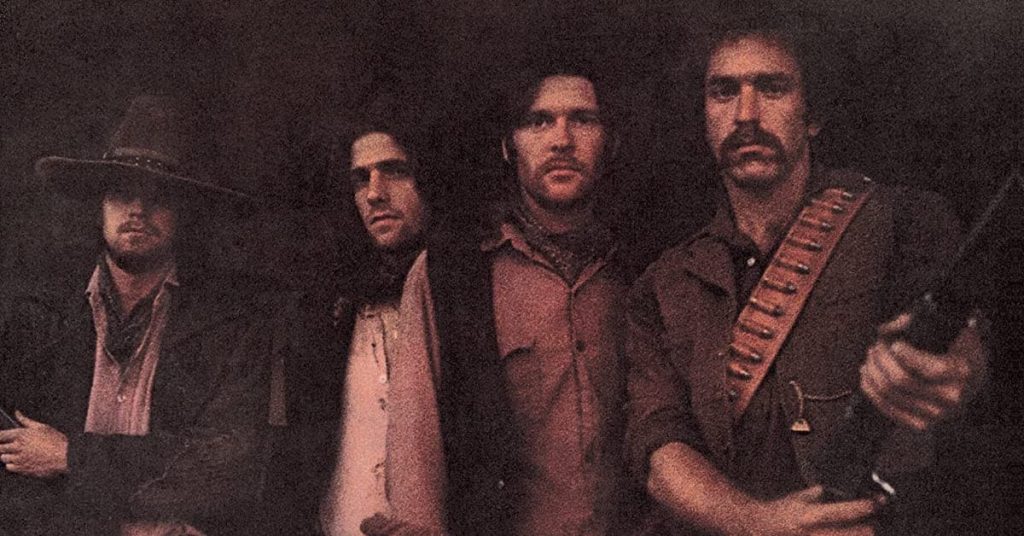
“Doolin-Dalton” – The Eagles’ Tale of Outlaws and Lost Dreams
“Doolin-Dalton,” from the Eagles’ 1973 album “Desperado,” is a song that encapsulates the essence of the band’s early fascination with the themes of freedom, rebellion, and regret. Taking inspiration from the real-life Doolin-Dalton gang, a group of outlaws operating in the American West during the late 19th century, the song serves as both a historical narrative and a metaphor for the restless spirit of individuals living on the edge. This ballad was co-written by Glenn Frey, Don Henley, J.D. Souther, and Jackson Browne, highlighting the collaborative genius behind many of the Eagles’ greatest songs.
With its gentle folk-rock instrumentation and haunting lyrics, “Doolin-Dalton” tells the story of a group of outlaws who, despite their daring exploits, meet tragic ends. The song not only explores the allure of living free from societal constraints but also reflects on the inevitable downfall that often accompanies such a lifestyle. Lines like “Sooner or later we all have to die” capture the stark reality of the fleeting nature of freedom, portraying a romanticized yet ultimately doomed existence.
Musically, “Doolin-Dalton” opens with a harmonica solo, lending a rustic, Western atmosphere to the piece. Don Henley’s plaintive vocals perfectly complement the song’s somber tone, while Glenn Frey’s guitar work adds a subtle layer of melancholy. The arrangement strikes a balance between country, rock, and folk elements, cementing the Eagles’ ability to blend genres seamlessly. This stylistic fusion would go on to become one of the defining features of their career.
While the song wasn’t released as a single, it remains a key track on “Desperado,” an album that has become iconic for its thematic cohesion. The record tells the story of an outlaw’s journey, from the thrill of rebellion to the heartbreak of betrayal and inevitable demise. “Doolin-Dalton” is central to this narrative, setting the tone for much of what follows on the album.
In many ways, the story of the Doolin-Dalton gang parallels the struggles musicians face in navigating fame, freedom, and personal identity. The Eagles, who themselves experienced the highs and lows of the rock-and-roll lifestyle, used the imagery of Western outlaws to reflect their own experiences with the pressures of the music industry. The song’s themes of independence and inevitable loss resonate deeply with anyone who has ever chased a dream, only to find that the reality is far less romantic than expected.
In live performances, “Doolin-Dalton” often became a powerful moment of reflection. During the “History of the Eagles” tour, the band would sometimes combine it with other tracks from “Desperado,” creating a medley that emphasized the interconnected nature of the songs on the album. This added depth to the performance, allowing audiences to experience the full emotional arc of the album’s outlaw narrative.
Though “Doolin-Dalton” may not have achieved the same commercial success as the Eagles’ later hits, it holds a special place in the hearts of fans who appreciate the band’s storytelling prowess. It serves as a reminder of the Eagles’ early ambition to create not just songs but musical sagas—pieces that explore the complexities of life, dreams, and regrets in a way that resonates across generations. “Doolin-Dalton” stands as a testament to the band’s artistic vision, showcasing their ability to blend narrative and melody into something timeless.